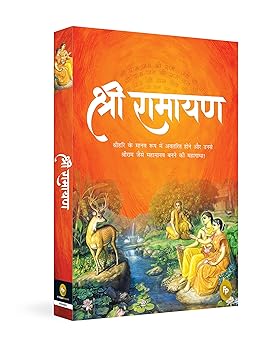देवी कवच
ॐ अस्य श्रीचण्डीकवचस्य ब्रह्मा ऋषिः, अनुष्टुप् छन्दः,
चामुण्डा देवता, अङ्गन्यासोक्तमातरो बीजम्, दिग्बन्धदेवतास्तत्त्वम्,
श्रीजगदम्बाप्रीत्यर्थे सप्तशतीपाठाङ्गत्वेन जपे विनियोगः।
ॐ नमश्चण्डिकायै॥
मार्कण्डेय उवाच
यद्गुह्यं परमं लोके सर्वरक्षाकरं नृणाम् ।
यन्न कस्यचिदाख्यातं तन्मे ब्रूहि पितामह ॥ १ ॥
ब्रह्मोवाच
अस्ति गुह्यतमं विप्र सर्वभूतोपकारकम् ।
देव्यास्तु कवचं पुण्यं तच्छृणुष्व महामुने ॥ २ ॥
प्रथमं शैलपुत्री च द्वितीयं ब्रह्मचारिणी ।
तृतीयं चन्द्रघण्टेति कूष्माण्डेति चतुर्थकम् ॥ ३ ॥
पञ्चमं स्कन्दमातेति षष्ठं कात्यायनीति च ।
सप्तमं कालरात्री च महागौरीति चाष्टमम् ॥ ४ ॥
नवमं सिद्धिदात्री च नवदुर्गाः प्रकीर्तिताः ।
उक्तान्येतानि नामानि ब्रह्मणैव महात्मना ॥ ५ ॥
अग्निना दह्यमानस्तु शत्रुमध्ये गतो रणे ।
विषमे दुर्गमे चैव भयार्ताः शरणं गताः ॥ ६ ॥
न तेषां जायते किंचिदशुभं रणसंकटे ।
नापदं तस्य पश्यामि शोकदुःखभयं न हि ॥ ७ ॥
यैस्तु भक्त्या स्मृता नूनं तेषां सिद्धि प्रजायते ।
ये त्वां स्मरन्ति देवेशि रक्षसे तान्न संशयः ॥ ८ ॥
प्रेतसंस्था तु चामुण्डा वाराही महिषासना ।
ऐन्द्री गजसमारुढ़ा वैष्णवी गरुड़ासना ॥ ९ ॥
माहेश्वरी वृषारुढ़ा कौमारी शिखिवाहना ।
लक्ष्मीः पद्मासना देवी पद्महस्ता हरिप्रिया ॥ १०॥
श्वेतरूपधरा देवी ईश्वरी वृषवाहना ।
ब्राह्मी हंससमारुढ़ा सर्वाभरणभूषिता ॥ ११ ॥
नानाभरणशोभाढ्या ।
नानारत्नोपशोभिताः॥ १२ ॥
दृश्यन्ते रथमारुढ़ा देव्यः क्रोधसमाकुलाः ।
शङ्खं चक्रं गदां शक्तिं हलं च मुसलायुधम् ॥ १३ ॥
खेटकं तोमरं चैव परशुं पाशमेव च ।
कुन्तायुधं त्रिशूलं च शार्ङ्गमायुधमुत्तमम् ॥ १४ ॥
दैत्यानां देहनाशाय भक्तानाम अभ्याय च ।
धारयन्त्यायुधानीत्थं देवानां च हिताय वै ॥ १५ ॥
महाबले महोत्साहे ।
महाभयविनाशिनि ॥ १६ ॥
त्राहि मां देवि दुष्प्रेक्ष्ये शत्रूणां भयवर्धिनि ।
प्राच्यां रक्षतु मामैन्द्री आग्नेय्यामग्निदेवता ॥ १७ ॥
दक्षिणेऽवतु वाराही नैर्ऋत्यां खड्गधारिणी ।
प्रतीच्यां वारुणी रक्षेद् वायव्यां मृगवाहिनी ॥ १८ ॥
उदीच्यां रक्ष कौबेरी ऐशान्यां शूलधारिणी ।
ऊर्ध्वं ब्रह्माणि मे रक्षेदधस्ताद् वैष्णवी तथा ॥ १९ ॥
एवं दश दिशो रक्षेच्चामुण्डा शववाहना ।
जया मे चाग्रतः स्तातु विजयाः स्तातु पृष्ठतः ॥ २० ॥
अजिता वामपार्श्वे तु दक्षिणे चापराजिता ।
शिखामेद्योतिनि रक्षेद उमा मूर्ध्नि व्यवस्थिता ॥ २१ ॥
मालाधरी ललाटे च भ्रुवौ रक्षेद् यशस्विनी ।
त्रिनेत्रा च भ्रुवोर्मध्ये यमघण्टा च नासिके ॥ २२ ॥
शङ्खिनी चक्षुषोर्मध्ये श्रोत्रयोर्द्वारवासिनी ।
कपोलौ कालिका रक्षेत्कर्णमूले तु शांकरी ॥ २३ ॥
नासिकायां सुगन्धा च उत्तरोष्ठे च चर्चिका ।
अधरे चामृतकला जिह्वायां च सरस्वती ॥ २४ ॥
दन्तान् रक्षतु कौमारी कण्ठ मध्येतु चण्डिका ।
घण्टिकां चित्रघण्टा च महामाया च तालुके ॥ २५ ॥
कामाक्षी चिबुकं रक्षेद् वाचं मे सर्वमङ्गला ।
ग्रीवायां भद्रकाली च पृष्ठवंशे धनुर्धरी ॥ २६ ॥
नीलग्रीवा बहिःकण्ठे नलिकां नलकूबरी ।
खड्ग्धारिन्यु भौ स्कन्धो बाहो मे वज्रधारिणी ॥ २७ ॥
हस्तयोर्दण्डिनी रक्षेदम्बिका चाङ्गुली स्त्था ।
नखाञ्छूलेश्वरी रक्षेत्कुक्षौ रक्षे नलेश्वरी ॥ २८ ॥
स्तनौ रक्षेन्महालक्ष्मी मनः शोकविनाशिनी ।
हृदय्म् ललिता देवी उदरम शूलधारिणी ॥ २९ ॥
नाभौ च कामिनी रक्षेद् ।
गुह्यं गुह्येश्वरी तथा ॥ ३० ॥
कट्यां भगवती रक्षेज्जानुनी विन्ध्यवासिनी ।
जङ्घे महाबला रक्षेत्सर्वकामप्रदायिनी ॥ ३१॥
गुल्फयोर्नारसिंही च पादौ च नित तेजसी ।
पादाङ्गुलीषु श्री रक्षेत्पादाधस्तलवासिनी ॥ ३२ ॥
नखान् दंष्ट्राकराली च केशांश्चैवोर्ध्वकेशिनी ।
रोमकूपेषु कौबेरी त्वचं वागीश्वरी तथा ॥ ३३ ॥
रक्तमज्जावसामांसान्यस्थिमेदांसि पार्वती ।
अन्त्राणि कालरात्रिश्च पित्तं च मुकुटेश्वरी ॥ ३४ ॥
पद्मावती पद्मकोशे कफे चूड़ामणिस्तथा ।
ज्वालामुखी नखज्वाला अभेद्या सर्वसंधिषु ॥ ३५ ॥
शुक्रं ब्रह्माणि मे रक्षेच्छायां छत्रेश्वरी तथा ।
अहंकारं मनो बुद्धिं रक्षमे धर्मचारिणी ॥ ३६ ॥
प्राणापानौ तथा व्यानमुदानं च समानकम् ।
वज्रहस्ता च मे रक्षेत्प्राणं कल्याणशोभना ॥ ३७॥
रसे रूपे च गन्धे च शब्दे स्पर्शे च योगिनी ।
सत्त्वं रजस्तमश्चैव रक्षेन्नारायणी सदा ॥ ३८॥
आयू रक्षतु वाराही धर्मं रक्षतु वैष्णवी ।
यशः कीर्तिं च लक्ष्मीं च धनं विद्यां च चक्रिणी ॥ ३९॥
गोत्रमिन्द्राणि मे रक्षेत्पशून्मे रक्ष चण्डिके ।
पुत्रान् रक्षेन्महालक्ष्मीर्भार्यां रक्षतु भैरवी ॥ ४० ॥
पन्थानं सुपथा रक्षेन्मार्गं क्षेमकरी तथा ।
राजद्वारे महालक्ष्मीर्विजया सर्वतः स्थिता ॥ ४१॥
रक्षाहीनं तु यत्स्थानं वर्जितं कवचेन तु ।
तत्सर्वं रक्ष मे देवि जयन्ती पापनाशिनी ॥ ४२ ॥
पदमेकं न गच्छेत्तु यदीच्छेच्छुभमात्मनः ।
कवचेनावृतो नित्यं यत्र यत्रार्थी गच्छति ॥ ४३ ॥
तत्र तत्रार्थलाभश्च विजयः सार्वकामिकः ।
यं यं कामयते कामं तं तं प्राप्नोति निश्चितम् ।
परमैश्वर्यमतुलं प्राप्स्यते भूतले पुमान् ॥ ४४ ॥
निर्भयो जायते मर्त्यः संग्रामेष्वपराजितः ।
त्रैलोक्ये तु भवेत्पूज्यः कवचेनावृतः पुमान् ॥ ४५ ॥
इदं तु देव्याः कवचं देवानामपि दुर्लभम् ।
यः पठेत्प्रयतो नित्यं त्रिसन्ध्यं श्रद्धयान्वितः ॥ ४६ ॥
दैवी कला भवेत्तस्य त्रैलोक्येपपराजितः ।
जीवेद् वर्षशतं साग्रमपमृत्युविवर्जितः। ४७ ॥
नश्यन्ति व्याधयः सर्वे लूताविस्फोटकादयः ।
स्थावरं जङ्गमं वापि कृत्रिमं चापि यद्विषम् ॥ ४८ ॥
आभिचाराणि सर्वाणि मन्त्रयन्त्राणि भूतले ।
भूचराः खेचराश्चैव जलजाश्चोपदेशिकाः ॥ ४९ ॥
सहजाः कुलजा मालाः शाकिनी डाकिनी तथा ।
अन्तरिक्षचरा घोरा डाकिन्यश्च महाबलाः ॥ ५० ॥
ग्रहभूतपिशाचाश्च यक्षगन्धर्वराक्षसाः ।
ब्रह्मराक्षसवेतालाः कूष्माण्डा भैरवादयः ॥ ५१ ॥
नश्यन्ति दर्शनात्तस्य कवचे हृदि संस्थिते ।
मानोन्नतिर्भवेद् राज्ञस्तेजोवृद्धिकरं परम् ॥ ५२ ॥
यशसा वर्धते सोऽपि कीर्तिमण्डितभूतले ।
जपेत्सप्तशतीं चण्डीं कृत्वा तु कवचं पुरा ॥ ५३ ॥
यावद्भूमण्डलं धत्ते सशैलवनकाननम् ।
तावत्तिष्ठति मेदिन्यां संततिः पुत्रपौत्रिकी ॥ ५४ ॥
देहान्ते परमं स्थानं यत्सुरैरपि दुर्लभम् ।
प्राप्नोति पुरुषो नित्यं महामायाप्रसादतः ॥ ५५ ॥
लभते परमं रुपं शिवेन सह मोदते॥ॐ ॥ ५६ ॥
इति देव्याः कवचं सम्पूर्णम्।
Introduction
Overview of Devi Kavach
Devi Kavach is a sacred protective hymn dedicated to Goddess Durga that devotees recite for spiritual protection.
Significance of Recitation
Reciting Devi Kavach is believed to remove obstacles protect from negative energies and bring blessings of the Goddess.
Origin of Devi Kavach
Devi Kavach originates from ancient scriptures and is a part of Durga Saptashati a revered text in Shaktism.
Importance During Navratri
Devotees especially recite Devi Kavach during Navratri to invoke the protective power of Goddess Durga.
Spiritual Benefits
Regular recitation of Devi Kavach strengthens devotion peace of mind and spiritual resilience.
Structure of Devi Kavach
Chanting Style
Devi Kavach consists of verses describing protective forms and mantras of Goddess Durga for recitation.
Verse Breakdown
The hymn is divided into multiple verses each focusing on a specific aspect of protection or blessing.
Key Mantras
The key mantras of Devi Kavach invoke courage strength and divine protection from Goddess Durga.
Recommended Recitation Method
Devotees should recite Devi Kavach with devotion clarity and preferably during early morning or evening pooja times.
Precautions During Recitation
Maintain purity concentration and positive intent while chanting to achieve maximum spiritual benefits.
Rituals and Practices
Daily Recitation
Many devotees include Devi Kavach in their daily prayers to seek continuous protection and guidance.
Navratri Special Recitation
During Navratri reciting Devi Kavach enhances spiritual energy and invokes blessings of Goddess Durga.
Fasting and Meditation
Devotees may combine recitation with fasting or meditation to deepen spiritual connection and focus.
Offering to Goddess
Devotees offer flowers incense and light to Goddess Durga while reciting Devi Kavach to show devotion and gratitude.
Group Chanting
Chanting Devi Kavach in groups increases spiritual vibrations and creates a harmonious environment for collective worship.
Devotee Experience
Spiritual Protection
Devotees share experiences of feeling safe and protected after regular recitation of Devi Kavach.
Peace of Mind
Reciting the hymn brings inner peace reduces anxiety and strengthens faith in Goddess Durga.
Strengthening Faith
Consistent practice of Devi Kavach cultivates devotion and a stronger spiritual bond with the Goddess.
Personal Testimonials
Many devotees report positive changes in life increased confidence and divine guidance after reciting Devi Kavach.
Encouraging Others
Sharing experiences encourages new devotees to recite Devi Kavach and embrace its spiritual benefits.
Travel and Accessibility
Temple Recitation
Devotees also recite Devi Kavach during visits to Durga temples especially during Navratri festivals.
Online Resources
The hymn is available online in text and audio formats for easy recitation at home.
Best Time to Recite
Early morning or evening pooja times are ideal for reciting Devi Kavach to align with natural energy cycles.
Learning Guidance
New devotees can learn the pronunciation and meaning of verses from guides priests or online resources.
Local Community
Participating in local community recitations or temple programs enhances devotional experience and group harmony.
Conclusion
Spiritual Importance
Devi Kavach remains a powerful hymn to protect devotees and cultivate faith devotion and spiritual energy.
Cultural Heritage
The practice of Devi Kavach preserves spiritual traditions and strengthens the cultural reverence of Goddess Durga.
Inspiration for Devotees
Reciting Devi Kavach inspires devotees to lead a disciplined positive and devoted spiritual life.
Encouraging Recitation
Sharing the benefits of Devi Kavach motivates others to incorporate it into daily or festival worship.
Global Significance
Devi Kavach is recognized worldwide among devotees as a protective and spiritually empowering hymn.
Devi Kavach is a sacred protective hymn dedicated to Goddess Durga that devotees recite for spiritual protection.
Reciting Devi Kavach is believed to remove obstacles protect from negative energies and bring blessings of the Goddess.
Devi Kavach originates from ancient scriptures and is a part of Durga Saptashati a revered text in Shaktism.
Devotees especially recite Devi Kavach during Navratri to invoke the protective power of Goddess Durga.
Regular recitation of Devi Kavach strengthens devotion peace of mind and spiritual resilience.
Devi Kavach consists of verses describing protective forms and mantras of Goddess Durga for recitation.
The hymn is divided into multiple verses each focusing on a specific aspect of protection or blessing.
The key mantras of Devi Kavach invoke courage strength and divine protection from Goddess Durga.
Devotees should recite Devi Kavach with devotion clarity and preferably during early morning or evening pooja times.
Maintain purity concentration and positive intent while chanting to achieve maximum spiritual benefits.
Many devotees include Devi Kavach in their daily prayers to seek continuous protection and guidance.
During Navratri reciting Devi Kavach enhances spiritual energy and invokes blessings of Goddess Durga.
Devotees may combine recitation with fasting or meditation to deepen spiritual connection and focus.
Devotees offer flowers incense and light to Goddess Durga while reciting Devi Kavach to show devotion and gratitude.
Chanting Devi Kavach in groups increases spiritual vibrations and creates a harmonious environment for collective worship.
Devotees share experiences of feeling safe and protected after regular recitation of Devi Kavach.
Reciting the hymn brings inner peace reduces anxiety and strengthens faith in Goddess Durga.
Consistent practice of Devi Kavach cultivates devotion and a stronger spiritual bond with the Goddess.
Many devotees report positive changes in life increased confidence and divine guidance after reciting Devi Kavach.
Sharing experiences encourages new devotees to recite Devi Kavach and embrace its spiritual benefits.
Devotees also recite Devi Kavach during visits to Durga temples especially during Navratri festivals.
The hymn is available online in text and audio formats for easy recitation at home.
Early morning or evening pooja times are ideal for reciting Devi Kavach to align with natural energy cycles.
New devotees can learn the pronunciation and meaning of verses from guides priests or online resources.
Participating in local community recitations or temple programs enhances devotional experience and group harmony.
Devi Kavach remains a powerful hymn to protect devotees and cultivate faith devotion and spiritual energy.
The practice of Devi Kavach preserves spiritual traditions and strengthens the cultural reverence of Goddess Durga.
Reciting Devi Kavach inspires devotees to lead a disciplined positive and devoted spiritual life.
Sharing the benefits of Devi Kavach motivates others to incorporate it into daily or festival worship.
Devi Kavach is recognized worldwide among devotees as a protective and spiritually empowering hymn.


